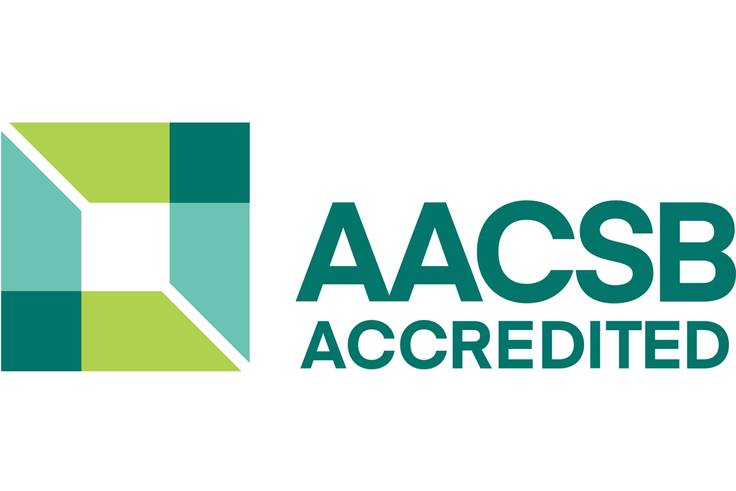
Business Accreditation & Affiliations
Why Does Accreditation & Affiliations Matter?
Going to college is a big investment. You are going to spend hours studying, writing papers, and taking exams. You also are going to spend a lot of money. All that work and money should provide you with a return on your investment. The Department of Business at Rollins College does give you that return on investment. We are associated with two distinguished organizations, PRME and AACSB.
Department of Business's Vision
Seeks to be nationally recognized as providing one of the best undergraduate business programs in liberal arts colleges in the United States.

AACSB
Advancing Quality Management Education Worldwide
AACSB provides internationally recognized, specialized accreditation for business and accounting programs at the bachelor's, master's, and doctoral levels. The AACSB Accreditation Standards challenge post-secondary educators to pursue excellence and continuous improvement throughout their business programs. AACSB Accreditation is known, worldwide, as the longest-standing, most recognized form of specialized/professional accreditation an institution and its business programs can earn.
AACSB-accredited schools have the highest-quality faculty, deliver relevant and challenging curriculum, and provide educational and career opportunities that are not found at other business schools.
AACSB-accredited schools must pass very rigorous quality standards. They have been proven to provide the best in business education worldwide. AACSB-accredited schools:
- are recognized worldwide by top employers and other universities.
- have employers that only hire their graduates. have more access to recruiters.
- have graduates that receive higher, more competitive salaries.
- say being accredited improves the quality of their business programs.
- say being accredited helps them hire and retain the best professors and researchers.
- have students that are more international and are likely to earn higher levels of education.
- have students with high-graduating GPAs.
- are challenging and teach the best skills that give a distinct advantage in the real world.
The highest standard of achievement for business schools worldwide
Less than 5 percent of the more than 16,000 schools worldwide granting business degrees have earned AACSB Accreditation. AACSB-accredited schools produce graduates who are highly skilled and more desirable to employers than other non-accredited schools.

PRME
The Business Management program has incorporated the 6 principles of responsible management education (PRME) into its curriculum, and Rollins College is a formal participant in the PRME global network. PRME's mission, as supported by the United Nations Global Compact, "is to transform management education, research and thought leadership globally by providing the Principles for Responsible Management Education framework, developing learning communities and promoting awareness about the United Nations' Sustainable Development Goals"
Principle 1 | Purpose
We will develop the capabilities of students to be future generators of sustainable value for business and society at large and to work for an inclusive and sustainable global economy.
Principle 2 | Values
We will incorporate into our academic activities and curricula the values of global social responsibility as portrayed in international initiatives such as the United Nations Global Compact.
Principle 3 | Method
We will create educational frameworks, materials, processes and environments that enable effective learning experiences for responsible leadership.
Principle 4 | Research
We will engage in conceptual and empirical research that advances our understanding about the role, dynamics, and impact of corporations in the creation of sustainable social, environmental and economic value.
Principle 5 | Partnership
We will interact with managers of business corporations to extend our knowledge of their challenges in meeting social and environmental responsibilities and to explore jointly effective approaches to meeting these challenges.
Principle 6 | Dialogue
We will facilitate and support dialog and debate among educators, students, business, government, consumers, media, civil society organizations and other interested groups and stakeholders on critical issues related to global social responsibility and sustainability.
